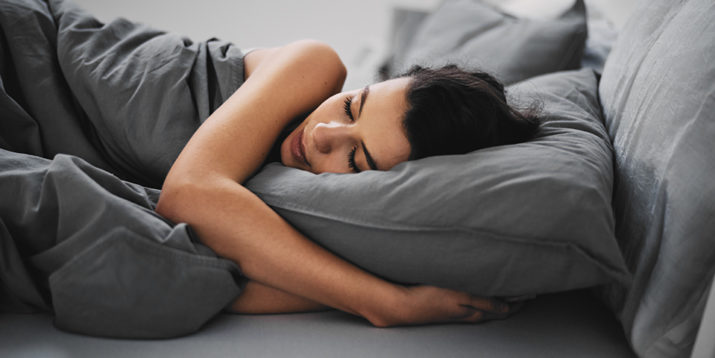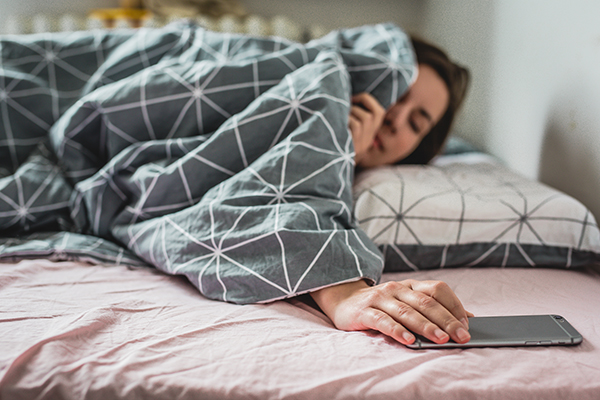
The importance of sleep is that not only does sleep help keep your energy steady throughout the day, but it also offers many other benefits.
Even when you’re spending much more time at home, quality sleep might still fall into the “nice to have” category.
But it’s worth putting higher on the list. Why is sleep important?
Not only does sleep help keep your energy steady throughout the day, but it also offers a surprising range of other benefits.
Let’s take a look at a few of them.
1. Weight Loss or Maintenance
Numerous studies have connected poor sleep to weight gain, and shorter sleep has been correlated with obesity.
One study found notable changes in body fat between short-, average-, and long-duration sleepers.
Those under the middle range of 7 to 8 hours were much more likely to experience gradual weight gain, even if they ate roughly the same amount of calories and got as much exercise as the average-duration sleepers.
This happens for several reasons, according to W. Christopher Winter, M.D., president of Charlottesville Neurology and Sleep Medicine, and author of “The Sleep Solution.”
The first is that proper sleep keeps your hormones regulated — and that includes hormones related to hunger, satiety, stress, and an overall feeling of wellbeing.
When these get off-kilter, it can have profound effects not just on your eating but also on your metabolism as well.
2. Gut Health
If you’ve struggled with sleep, it’s likely you may have felt some digestive challenges as well, from bloating to gas.
But digestion is not all that your gut does — it’s also a key component of your immune system, so better sleep can mean healthier immune function.
One study found that only two consecutive nights of short sleep led to disruption in gut health, setting participants up for potential issues like a higher vulnerability for infection, sluggish energy during the day, less focus at work, and other challenges.
3. Workout Performance
Studies suggest it’s a two-way relationship: Exercise can help you sleep better, and sleep quality can provide advantages for workout performance.
In terms of the latter, that’s because your cells and tissues repair themselves as you slumber, and your heart gets necessary maintenance, too.
That can help your next workout be more focused and powerful.
4. Better Emotional Health and Memory
Feel like you’re always in a bad mood? It could be a lack of shuteye, suggests sleep researcher Daniela Tempesta, Ph.D., of the University of L’Aquila in Italy.
In a study published in the Journal of Sleep Research, Tempesta and her colleagues found that just five consecutive nights of shortened sleep resulted in negative mood, decreased alertness, and irritability.
“Sleep seems to play an important role in emotional processing, including how we react to different situations,” she says. “This is the same part of the brain that stores memory as well, so we see some impact on short-term recall, too.”
How to Get Better Sleep
That you’ve answered your questions about “Why is sleep important?” here are a couple of ways to make catching some zzz’s even better.
1. Schedule Sleep
With so many advantages, making sleep a priority is crucial, but it’s not always an easy endeavor if you’ve trying to change your habits.
Winter suggests cultivating good “sleep hygiene,” which means tactics like going to bed and waking up at the same time every day — even on the weekends, sorry — and creating a bedtime schedule that helps your brain prep for slumber.
2. Reduce Screen Time
That might mean cutting down on screen time for at least 30 minutes before sleep, doing some deep breathing exercises, or employing meditation techniques like those found in a guided meditation program like Unstress.
Start with gradual changes, he suggests, and figure out what works best for you.
“There are plenty of sleep strategies out there, but there’s no one-size-fits-all approach,” he says. “Play around with what seems to be a good fit. And most of all, just see sleep as the priority it should be.”
From the Beachbody On Demand Blog –






